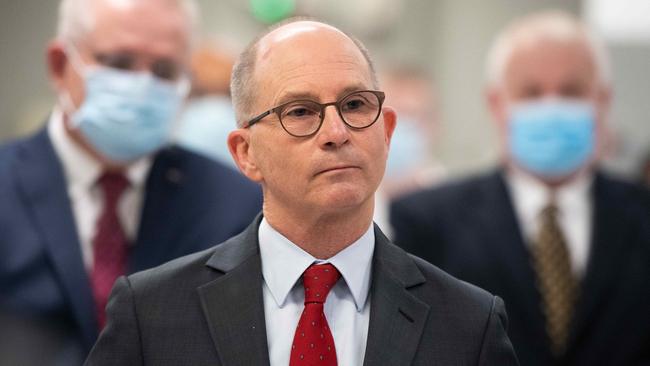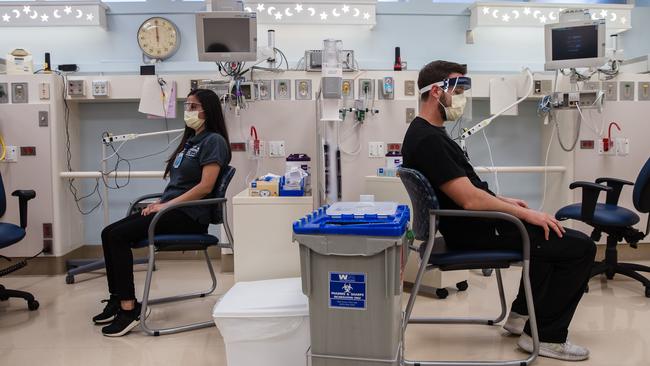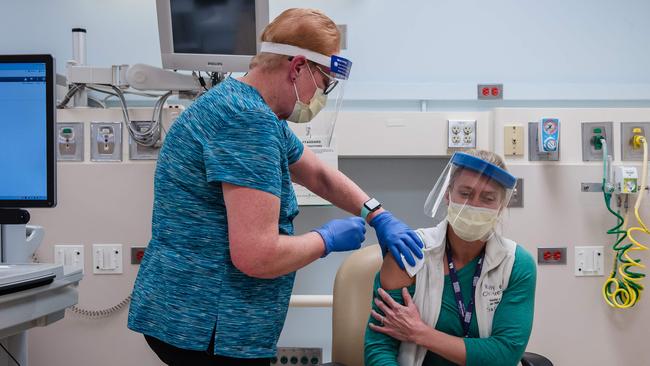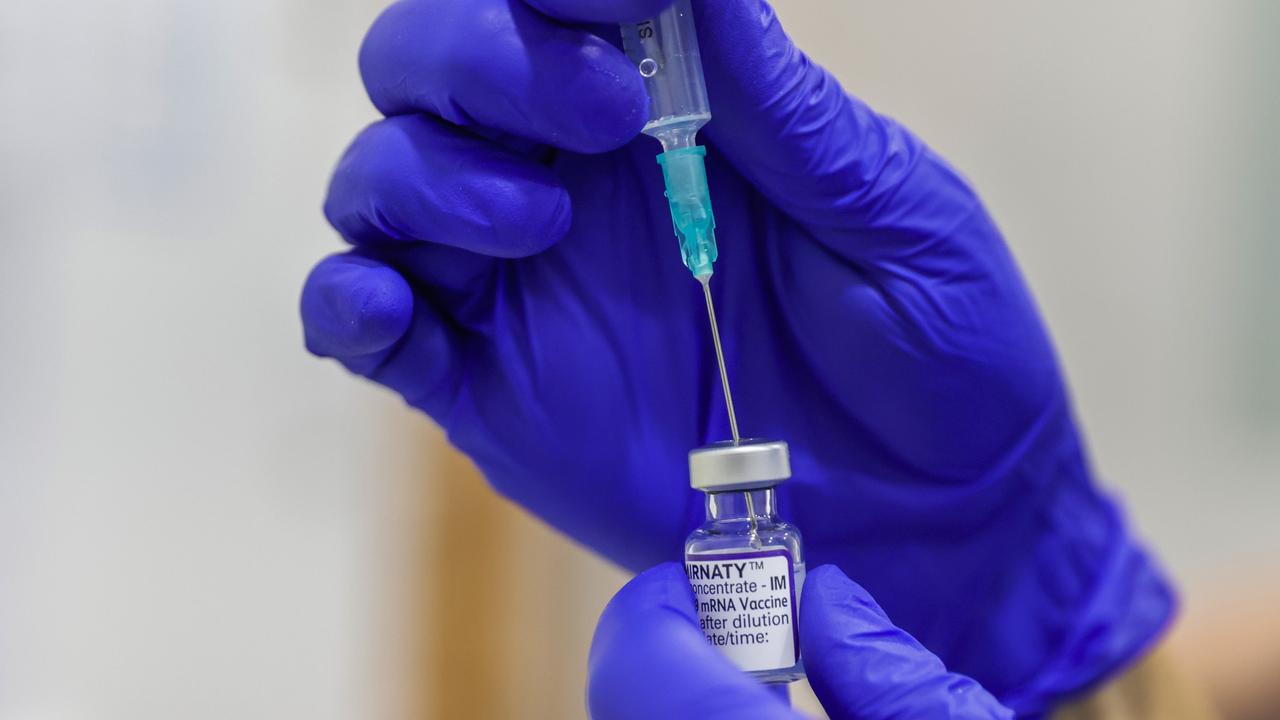Overseas travellers may still have to quarantine after COVID vaccine
Getting a COVID-19 vaccine will not automatically allow Australians to return from overseas without quarantining, health experts say.
NSW Coronavirus News
Don't miss out on the headlines from NSW Coronavirus News. Followed categories will be added to My News.
Getting a COVID-19 vaccine will not automatically allow Australians to return from overseas without quarantining as the drugs don’t stop asymptomatic transmission, health experts say.
Australia’s acting Chief Medical Office Professor Paul Kelly said the country was on track to roll out potentially multiple vaccine options by March, but warned this would not lead to an immediate reopening of international borders.
“It sounds simple, but it’s not simple,” he said.

“At the moment, unfortunately, the vaccines that we know most about don’t appear to demonstrate any protection from transmission of the virus.
“They are very effective at stopping disease from the virus in an individual person, but it may well be that transmission might continue.”

Prof Kelly said Australia would study the issue in the coming months, looking at how the emergency rollout in the US, UK and Canada was going in particular.
“The AstraZeneca vaccine that has already looked at whether that vaccine protects against asymptomatic illness, at the moment from the interim analysis that was published in The Lancet journal last week, it demonstrates it probably doesn’t,” he said.
“So it could be that people may have asymptomatic disease after having the vaccine and not know it. And that, as we know, can transmit to others.”
Prof Kelly said in addition to considering who gets which vaccine and when, health experts would have to develop guides for people overseas who have had the injections.
“I think it will rely very much on where people have come from, what vaccine
they’ve had, whether they’ve had the two doses, when they had those two doses,” he said.

Prof Kelly said his team were also developing a plan to ensure Australians get both doses of the relevant vaccine once available.
“That second dose does appear crucial,” he said.
“Certainly almost all of the over 200 vaccines that are now in development and the tens of vaccines that are in clinical trials do rely on a second or a booster dose. Usually about three weeks after the first dose.
“So it will be absolutely important to get both doses.”
Prof Kelly said Australia was better placed than other nations like the US to co-ordinate the rollout of a double dose vaccine treatment due its strong health system.
“We’re looking at ways that the Australian Immunisation Register can be used to record that
first dose,” he said.
“Hopefully to look at a reminder to come to the second dose and record that second dose.
“So people will know exactly the dates that they had that vaccine, which vaccine they had, which batch of vaccine they had.
“And that will also be crucial as we look at the development of any rare side effects that might come as we roll the vaccine out, which is again an advantage of having other countries going first.”





